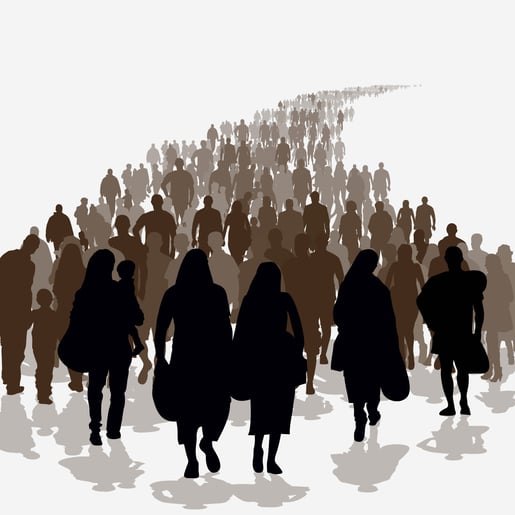
As the number of refugees increases with no signs of abating, many countries struggle with providing basic services such as food and shelter. The concept of how best to integrate these people into their country and culture are often not high on the priority list of things that must happen. Yet, learning about the culture and accepted behaviors is crucial to feeling comfortable in a new home.
The New York Times recently ran an article "Norwegians Offer a Lesson in How to Treat Women". The article discussed how Norway (and Germany and Denmark to a lesser extent) have identified behavior towards women as a major gap for many newcomers. Not surprisingly, Norway, which ranks second (after Iceland) in the World Economic Forum's 2015 Gender Gap Index, is leading the way on dealing with the cultural gulf that exists and then dealing with the challenge by offering programs on a voluntary basis.
The underlying concept of cross-cultural training is to identify the differences between the two cultures and to address those areas where the culture clash could lead to problems. When done for expats and their families, the target audience is generally eager to learn everything they can to make the assignment successful. However, when thinking about refugees, the first issues that come to mind are how to house and feed them. Integration into the culture is only considered when the basic needs and language are handled. By then, it is often thought that the refugee or immigrant has learned what they need to know.
This might be true for superficial behaviors such as whether or not to greet someone you pass on the street or if it is necessary to greet a shopkeeper when you enter a store. However, when dealing with fundamental differences in behavior that could be totally inappropriate in the new country, special training is required. Understanding how women are treated in an environment where equality is a basic fabric of the culture is the cornerstone for culturally adapting in Norway. Refugees must be prepared to encounter women in senior level positions who they must treat with respect and deference. They should be prepared to see women out in public, dressed in their own style and not immediately think that this says something negative about the women. It is important that refugees understand which behaviors are inappropriate and how to read signals properly, since misreading them could lead to problems.
Norway is leading the way in realizing that there are some behaviors that clearly differentiate two cultures that a refugee is not necessarily going to learn by observation. These skills, like language, must be taught. Starting as a voluntary program is the first step towards helping refugees make sense of the behavior they see at a time when everything can seem new and alien. The fact that they have prepared material and have interpreters in the languages of the refugees, demonstrates their commitment to making the transition as painless as possible for refugees.
Germany is experimenting with running such programs for teenagers, which is an excellent way to change perceptions with a group that is more willing to challenge conventional mores. It also helps that they are focusing on a generation that will have the longest time spent outside their home country, so they will reap the benefit of this training for the rest of their lives, regardless of where they live. And, since Germany has also had success with training refugees to take on jobs and apprenticeships, those who have had such training will fit into the work environment more readily.
What struck me as missing from these landmark programs is training refugee women on the way women in this culture are treated so that they understand behaviors when they leave the home. Refugee women must understand that certain behaviors by men are not innuendos or unwanted advances, they are simply friendly overtures.
With refugees becoming a more frequent occurrence, what types of training do you see as important? Do you see the needs of refugees as different from other immigrants? Should the training be voluntary, as most current programs are, or should training be mandatory?
As the global landscape becomes more integrated, we become more reliant on cultural knowledge to live and work together successfully. Download our Syria pocket guide and get started today.


